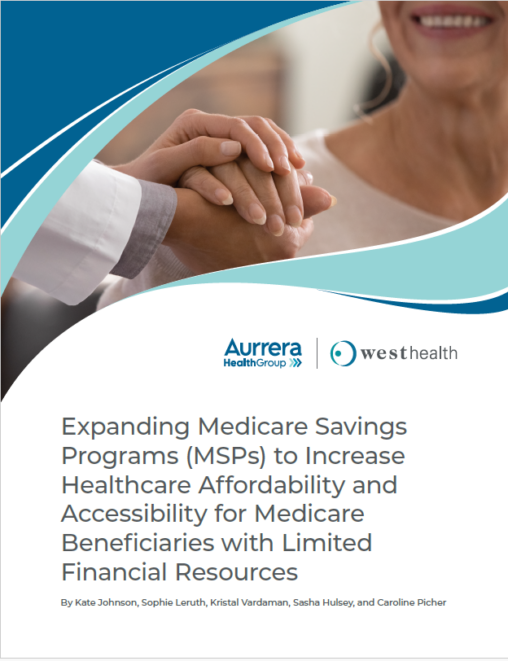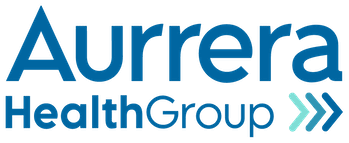Resource
Expanding Medicare Savings Programs to Increase Healthcare Affordability and Accessibility for Medicare Beneficiaries with Limited Financial Resources
By Kate Johnson, Sophie Leruth, Kristal Vardaman, Sasha Hulsey, and Caroline Picher
Medicare Savings Programs (MSPs) help make healthcare more affordable and accessible for low-income, Medicare-eligible older adults by lowering their Medicare costs. Approximately 10 million individuals are currently enrolled in MSPs nationwide, although research suggests many others may be eligible but not enrolled. In an effort to increase access to MSPs and the
benefits they provide, West Health partnered with Aurrera Health Group (Aurrera Health) to identify state policy levers and strategies to expand MSP eligibility and increase participation among eligible individuals.
Key takeaways from this brief include:
- State efforts to raise financial eligibility thresholds can increase MSP enrollment and improve healthcare affordability for older adults.
- Increasing income eligibility is more effective than raising or eliminating asset limits in expanding access to and increasing enrollment in MSPs.
- Aligning MSP eligibility with eligibility for other programs that serve low-income adults can support expanded access to more robust benefits.
- Careful budgetary analysis can help identify opportunities to offset some MSP expansion costs and best leverage the availability of federal resources.
- Lesser-of payment policies that reduce provider payments can compromise the value and protections offered by MSPs.
- State efforts to streamline enrollment and conduct outreach can help address MSP participation challenges.
- Recent federal action to maximize MSP enrollment will require state investment in system changes and federal support and coordination.
- Bolder solutions for improving accessibility of MSPs could help further reduce complexity and ease burdens on beneficiaries and states.


